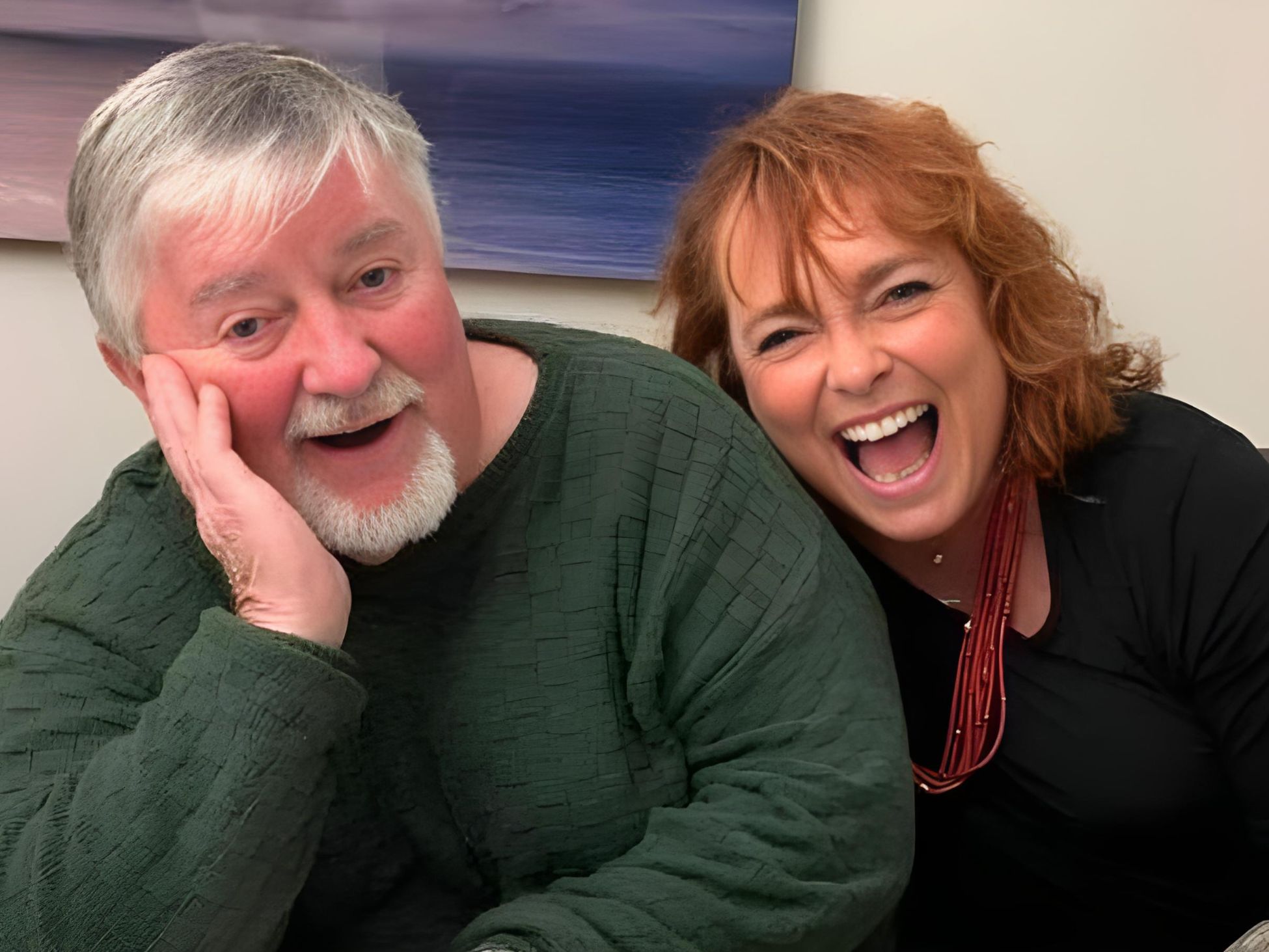Overcoming Breast Cancer: Rebecca Weintraub’s Inspiring Journey
October is Breast Cancer Awareness Month, a time to reflect on the progress made in preventing, detecting and treating the disease and the work that remains to be done. In 2024 alone, more than 310,000 people are estimated to be diagnosed with breast cancer in the U.S., and one in eight women will be diagnosed with the disease in her lifetime. That’s one person every two minutes.
But there is hope. Advancements in early detection methods and support continue to increase the chances of survival. In fact, when caught in its earliest, localized stages, the five-year relative survival rate of breast cancer is 99%.
That’s a statistic breast cancer survivor Professor Rebecca Weintraub, PhD, would have liked to have heard 21 years ago. In 2003, Bek, the nickname she goes by, was diagnosed with stage 3C of a rare, aggressive form of breast cancer with only a 30 percent survival rate in three years.
Three weeks later she was doing chemotherapy. Over the next two years, Bek endured 12 rounds of chemo, five surgeries and weeks of radiation, all while choosing to continue working as the Director of the Master’s of Communication Management program and the Center for Corporate and Community Education at USC’s Annenberg School for Communication.
“When I read the survival rates of inflammatory breast cancer I was devastated,” said the Hollywood Riviera resident, whose students called her Dr. R. “I had a paralyzing fear that sapped me of my energy and power. But when I took another look at the data I realized that the statistics were past information. They weren’t future predictors but rather analytics from years before. More importantly, I realized that no one has survived cancer 89% or 33%. It’s a zero-sum game for each one of us. 100% or 0%. My advice is to ignore the stats and plan on being 100%. Stats are for mathematicians, not cancer survivors!”
A big part of Bek’s journey has been to give back by championing breast cancer research and helping survivors. Four months after finishing her treatment, for example, Bek walked a half marathon to fundraise for breast cancer support groups. She also served on the board of the breast cancer support group that was immensely helpful in her recovery.
“I thought I didn’t need a support group but studies show longer survival rates for patients who have attended them, and that was enough for me,” said Bek, who is currently Emerita Clinical Professor of Communication at USC, as well as a professional speaker, a corporate communications coach and an author. “The Wellness Community South Bay breast cancer support group was strong for me when I felt defeated. They were optimistic when all I could see was a black hole. They showed me how to survive diagnosis, chemo, radiation, hair loss — the works. And then, when I was strong, I got to give it all back to the next women who joined us.”
Through it all, Bek maintained her life-long sense of humor, much of which is reflected in a book she is writing about her breast cancer experience, Cuts From the Slice of Life (see excerpt in this issue).
“The most important thing I want to emphasize is that a breast cancer diagnosis is not a death sentence, and I’m proof of that,” said Bek. “There have been many advancements in the more than two decades since I was diagnosed, including new drugs and protocols. No one truly knows when they will die. We only have today, so live it with hope and humor.”
The Cancer Support Community South Bay (formerly The Wellness Community South Bay), offers classes and workshops free of charge, including several breast cancer support group meetings each week.
To learn more about the Cancer Support Community South Bay, go to cscsouthbay.org, call 310-376-3550 or email Carla@CSCSouthBay.org or info@CSCSouthBay.org. They are located at 2601 Airport Drive, Suite 100 in Torrance.
You can reach Bek Weintraub at drbeksurvivor@gmail.com.
Hair Is Over-Rated
(excerpted from the forthcoming memoir by Professor Rebecca Weintraub, PhD, Cuts From the Slice of Life)
Forget nausea—the side effect every woman thinks of when she finds out she’s getting chemo is hair loss. And I was no different.
Now, like most women, my hair is an indicator of what kind of day I am going to have. There are good hair days and bad hair days. I had been working on growing out my hair and it was finally where I wanted it. Slightly longer than chin length, good color and highlights, great shine—it was terrific. Now I was facing what one video called “No Hair Days.”
Over time I got used to it all. At home, I would wear nothing on my head. It was cooler during menopause hot flashes and generally more comfortable. The wigs never really bothered me—but it was rather like wearing a hat. I’ve never been big on wearing hats. Many women go the scarf and hat route rather than the wig route. On them, it looks chic. On me it looked odd. Scarves never looked quite right. I did have some hats that I liked wearing – but they didn’t look quite as good as they do when a little hair is poking out around the face. I’ve since seen one beautiful woman wearing a large-brimmed red hat with a fake ponytail hanging down the back. If I’d had that, I might have been more willing to wear a hat.
So, I wore the wigs for months.
And six weeks after the last chemo treatment I looked in the mirror and realized I had hair. Short hair to be sure, but hair.
That day I went to campus without a wig. Rich, my husband, asked, “You’re going to school topless?”
“Yup,” I replied, “And so is my car.”
With that, I went outside, put the top down on the convertible and drove to USC with the wind whistling through my stubble.

